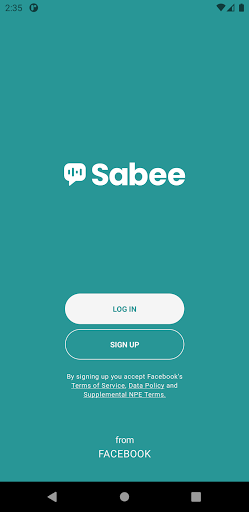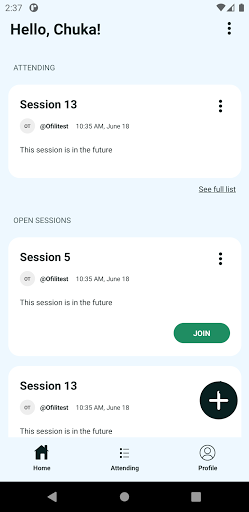The internal Research and Development (R&D) team at Facebook is working on an educational mobile app called Sabee. The app will be targeted at Nigerian learners when it is finally launched.
Sabee is currently in early alpha testing with fewer than 100 testers who are under non-disclosure agreements (NDA) with Facebook, TechCrunch reported after the company confirmed its plans for Sabee in an interview.
The app was on Google Play Store for a short time and is no longer public. It was available so briefly that it was never ranked on any charts, Sensor Tower, an app store intelligence firm, said.
Beyond that small group of testers, Sabee is not available for anyone else presently but Facebook hopes to scale it to the next stage before the end of the year.

Connecting learners and educators
The name “Sabee” is a stylisation of the Nigerian Pidgin word sabi which means “to know”. Through the app, Facebook aims to connect learners and educators in online communities to make educational opportunities more accessible in Nigeria.
“There are 50 million learners, but only 2 million educators in Nigeria,” Facebook’s Product Lead, Emeka Okafor, said. “With this small, early test, we’re hoping to understand how we can help educators build communities that make education available to everyone. We look forward to learning with our early testers, and deciding what to do from there.”
This large gap between learners and educators in Africa’s most populated country also significantly affects women and girls, which is another key issue that Sabee will focus on.
Facebook is also looking to better serve groups that are often left behind by technology, so the team behind Sabee is working to create an app that works with connectivity as low as 2G.

Facebook’s Sabee project comes amid a global boom in the educational tech (edtech) space. It is one of the few industries that have gotten a big boost from the coronavirus pandemic as the need for contact-less services rose.
In Africa, Nigeria had the largest share of the 210 education-focused tech startups as of the first quarter of 2020. These startups are helping to address the country’s age-long problems in the education sector such as poor learning experience and outcomes and a huge number of out-of-school children.




















